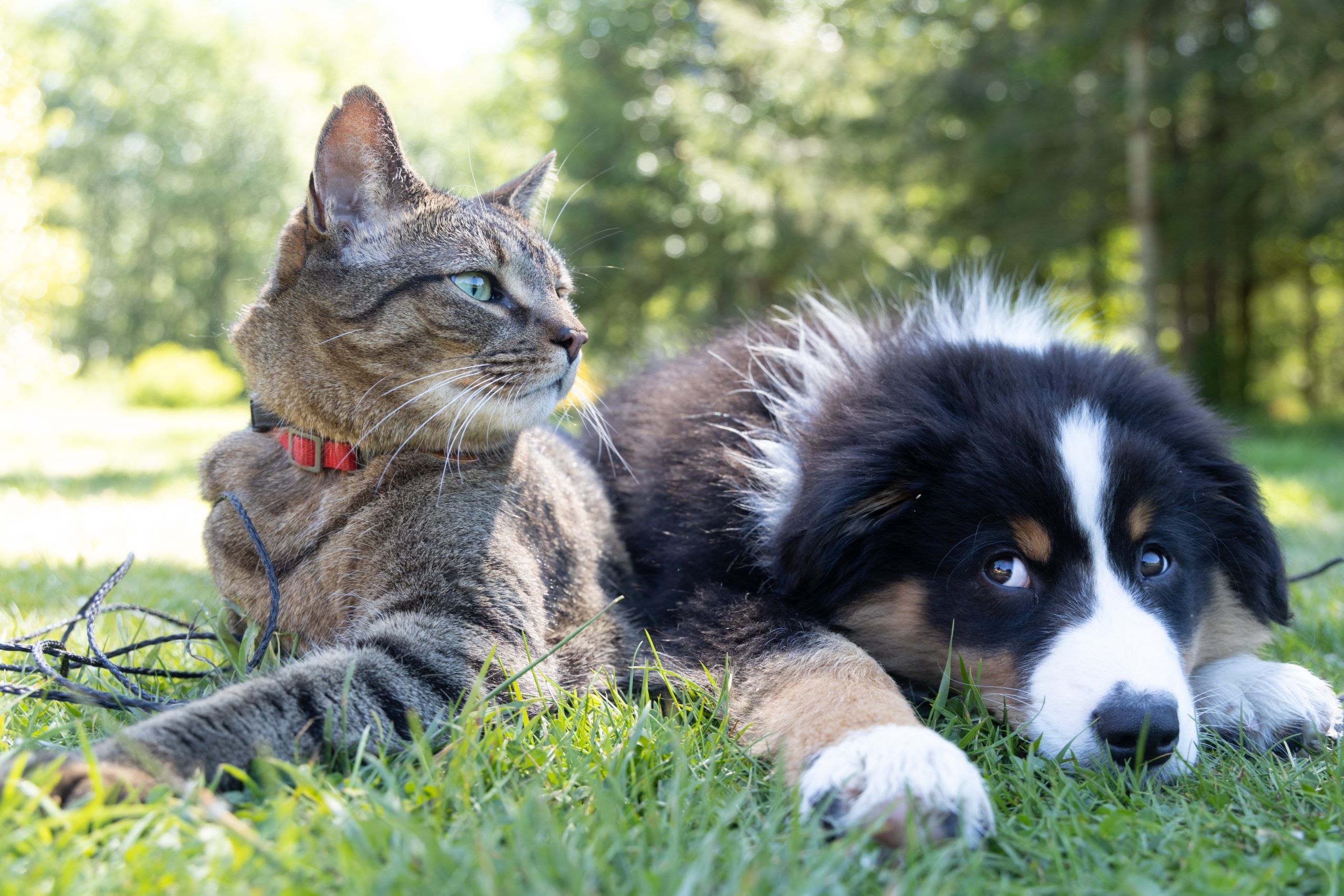
Wellness Care
Wellness Care for Dogs
Wellness exams are the cornerstone of preventive care and the key to staying ahead of problems that may be developing and staying on top of any chronic health issues your dog may be experiencing. From puppy care to senior dog healthcare, our team of dedicated veterinarians are here to ensure your dog gets the most out of their routine exams.
A wellness exam is a perfect time to discuss your dog’s activity level, diet and nutrition, preventative options, and any irregularities you may have noticed in their demeanor. Your veterinarian will also perform a physical examination on your dog and recommend any necessary lab work such as fecal, urines, or blood tests.
Our team is dedicated to helping your dog feel at ease through trust, patience, and respect during their appointment so that we can perform a thorough examination.
At VIDA Vet Care Centennial, we put an emphasis on annual wellness exams. These appointments help us keep up with your pet through all stages of their lives, and allows us to create a baseline of health for them. At these appointments, we’ll do a full nose-to-tail exam and make sure our pet is up-to-date on vaccines and parasite preventives.
What to Expect:
We know a trip to the vet can be stressful for your pet, but we work hard to make sure you both leave with a smile on your face. We follow all AAHA protocols for pet exams which also include annual blood testing and vaccinations. During the exam, we’ll focus on:
- Your pet’s eyes, nose, mouth, and teeth
- A full check of your pet’s skin and coat
- Check for any issues with your pet’s limbs and joints
- Create a baseline for heart rate, weight, temperature, and respiratory rate
- Discuss your pet’s diet and lifestyle
- Make sure your pet is on a proper exam and vaccine schedule
We Provide Senior Pet Wellness, too
Senior pets are important to us, and of course to our clients. We provide full senior pet physical exams for and go over what to expect as our four-legged friends begin the aging process. We are able to set up a monitoring plan for each animal to aid in early detection of age-related changes or illness. This is a good time for clients to ask questions about senior life for their pet. Senior pets need special care that includes semi-annual exams and diagnostics that will monitor and detect problems early – keeping those golden years golden.
Dog Wellness Q&A
How often would I bring my dog in for a wellness check?
Since our pups age significantly faster than humans do, we want to be able to keep a close watch over their health and changing needs. Therefore, a wellness examination every 6 months is recommended.
What will my veterinarian look for during a physical exam?
A thorough evaluation from nose to tail is performed to detect any changes or concerns. Our veterinarians will look at your dog’s mouth to identify the level of dental tartar and any areas of gingivitis, growths, or chipped teeth. Eyes are examined for any age-related changes with the lenses, eyelid growths, and general appearance. Ears are assessed for signs of infection. The doctor will listen to your pet’s heart and lungs for any heart murmurs, abnormal rhythms, or wheezing. Palpation of the belly assesses for general comfort, and presence or enlargement of specific organs. Skin is evaluated for rashes, bumps, skin tags, and fleas/flea dirt. Your dog’s gait is evaluated for lameness, pain, or stiffness. A body condition assessment will determine your pet’s ideal weight and any recommendations for diet adjustments or changes with activity can be made.
Is there any additional testing needed beyond a wellness exam? Annual blood testing for heartworm and tick diseases as well as annual fecal testing for intestinal parasites is standard. A wellness blood panel is highly recommended annually to evaluate organ function and monitor any trends or changes. This allows us to personalize care more thoroughly for your pet to keep them happy and healthy for years to come.
Wellness Care for Cats
Because our veterinarians believe strongly in prevention and early disease detection, we recommend twice yearly exams for all pets in. In addition to these vaccines, our veterinary team recommends including regular blood work to identify diseases. We also recommend checking your pet’s stool twice yearly to identify intestinal parasites which can affect both their health and the health of your family.
What to Expect During Your Pet’s Wellness Exams
At your pet’s bi-annual pet wellness exams, our veterinarians will do a thorough physical exam, dental exam, discuss your pet’s lifestyle, answer any questions you may have about your pet’s physical well being, behavior, and nutrition. They will make recommendations for parasite prevention and specific diagnostics or treatment based on your pet’s needs.
Our veterinarians will decide with you which vaccines your pet needs based on their lifestyle. For cats, our veterinary team recommends the FVRCP to prevent feline rhino tracheitis, caliciviral, and panleukopenia, in addition to rabies. We offer 3 year options for these vaccines for pets who qualify. Additionally, we carry the feline leukemia vaccine. Kittens begin their vaccine series between 8 and 10 weeks of age.
Feline Vaccinations:
- Leukemia, Feline Rabies 1YR Purevax, Feline FVRCCP 1YR, Feline Rabies/FVRCCP combo
VIDA Centennial is proud to be a premier animal wellness clinic. Give us a call at (303) 843-7222 today!
A Full Exam is recommended every 6 months (after all that’s 3.5 human years). We also recommend routine bloodwork (internal exam), a fecal (internal parasite check), Heart Worm Test, Oral Exam, Proheart Injection (canines only), or some type of heartworm preventative & Flea and tick preventative. Our senior patients are always offered Blood Pressure checks & ECG’s as well!
Feline Vaccines:
C – Calicivirus Pneumonitis
Produces cold like symptoms in cats. May also cause raw ulcers on their lips and tongues.
C – Chlamydia
Causes mainly upper respiratory infection.Tends to favor the eyes and can cause infections.Can be passed through infected fluids such as sneezing, coughing or eye discharge.
R – Rhinotracheitis
This is Highly Contagious upper respiratory disease. Transmitted by airborne routes, direct contact and contaminated objects
Felv- Feline Leukemia Virus
It is responsible for about 1/3 of all cancer deaths among cats.Spreads from all secretions of an infected catThis virus is short lived outside the hostTransmitted via grooming, sneezing, fighting, contaminated objects and other feline social contacts.
FIV – Feline Immunodeficiency Virus
Attacks and weakens the immune systemSpreads primarily through bite wounds between fighting cats.
R – Rabies
This is a zoonotic disease(can be transmitted to humans) that attacks the central nervous system. Can be transmitted through a bite from a rabid animal.
Schedule an Appointment To Start A Preventative Care Regimen for Your Pet
Call our Centennial office at (303) 843-7222 or Make an Appointment today!
